
Hasdrubal Barca, following a victory over the Tartessi, was ordered by Carthage to join Hannibal in Italy but requested a successor with a strong army for Iberia, anticipating unrest. Himilco was chosen, arriving with troops and a fleet. Meanwhile, Sicily's political landscape shifted as Hieronymus of Syracuse, influenced by Carthaginian envoys, sided with Carthage, posing a new threat to Rome. Amidst these developments, Rome adjusted its military strategy in response to the looming Carthaginian and Macedonian alliances, focusing on containment and fortification to counter Hannibal's advances in Italy.
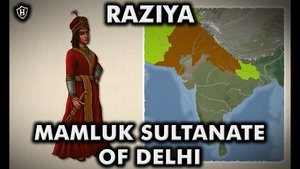
Raziya, the first and only female ruler of the Mamluk Sultanate of Delhi (1236-1240), was chosen by her father over her brothers for her merit, a rare decision in a time when women seldom led. Born to Sultan Shams al-Din Iltumish, a former slave who rose to power in India, Raziya's reign was notable for her independence and breaking gender norms.
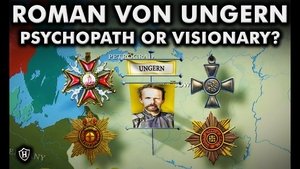
Roman von Ungern-Sternberg was of Baltic-German nobility origin, served in the Imperial Russian Army, but fell in love with the far-east, its history and culture. He was convinced he was a descendant of Ghengis Khan, adopted a hybrid ideology of combined Buddhism, Christianity and Samurai influences, and led his clique of merciless Cossacks in brutal battle against the Bolsheviks. But not before conquering Mongolia, albeit for a brief while, and declaring himself its head of state. He waged a campaign of terror, without any mercy towards his opponents. Still, at the same time, according to historians, a modern-day independent Mongolia would not be possible without his activities. He became known as the Mad Baron in history books, an epitaph that is rather fitting for this larger than life character, whichever way you look at him.
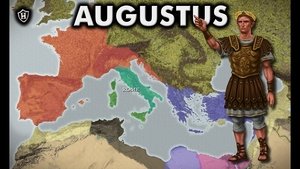
Rome, foundational to the western world, transitioned from republic to empire thanks to Gaius Octavius, later Emperor Augustus. Born in 63 BC to a senatorial family, his early life was marked by illness and underestimation. Yet, his determination led him to join Caesar, his great-uncle, in military campaigns, despite initial setbacks like shipwrecks. Impressively, his efforts won Caesar's favor, leading to his adoption and inheritance as Caesar's sole heir. This pivotal moment set the stage for Octavius's rise, through battles and political savvy, eventually transforming him into Rome's first emperor and reshaping the Roman state.
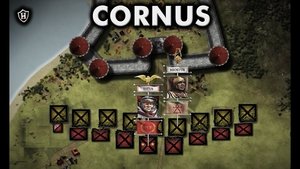
In 216 BC, Hannibal, with his main army in Capua, was strengthening his position in southern Italy. His forces, bolstered by Samnite allies, numbered around 40,000. His brother Mago was set to increase this with 17,000 Lucanians and Bruttians, aiming for over 18,000 troops. Rome, facing this threat, managed to muster 80,000 soldiers, albeit many inexperienced. Fabius Maximus adopted a strategy to avoid direct conflict, focusing on Rome's recovery. By 215, as the Second Punic War expanded, Hannibal sought more allies and reinforcements. Mago, moving south, took Bruttium, easing African troop transport. He then appealed to Carthage for further support against Rome.
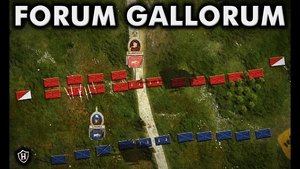
In 44 BC, after the resolution of a devastating civil war, Julius Caesar's assassination by political rivals threatened to reignite conflict. Despite the absence of a clear successor, Caesar's will revealed his 19-year-old nephew, Gaius Octavius (Octavian), as his heir. Mark Antony, Caesar's co-consul and senior official, initially dominated Rome's political scene but faced challenges, including from Cicero and Caesar's assassins. Antony's attempt to maintain power by negotiating compromises was complicated by his preference for Cisalpine Gaul over Macedonia. Meanwhile, Octavian, underestimated by all, began to emerge as a significant political figure.
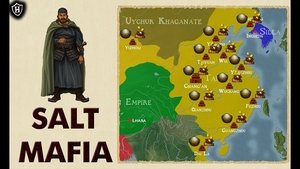
Salt was critical in medieval Tang China, not just for nutrition and food preservation but also economically and politically. The Tang dynasty heavily regulated salt to control the economy and maintain power, creating a lucrative illegal trade. This backdrop saw salt smugglers like Huang Chao rise, challenging the weakened dynasty post-An Lushan Rebellion. The government's monopoly on salt, aiming to stabilize finances, ultimately contributed to societal discontent and the dynasty's eventual decline.
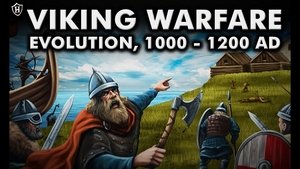
The divergent evolution of the Norse world from the 11th century onwards was, above all, influenced by each country's geopolitical limitations. This explains the different stages of military Europeanisation that each region attained up to the late twelfth century. Changes in warfare, initially obtained through imitation, slowly started to show growing regional differences from around 1200 AD onwards, a phenomenon mainly fuelled by the disparate conquest interests of the Scandinavian kingdoms.
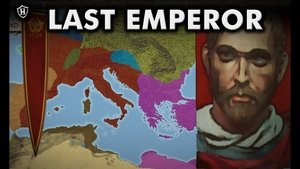
Majorian, born between 420-426 into a lower aristocrat family, rose through military ranks due to his and his family's close connections with powerful Roman figures. A capable leader and tactician, he was considered for marriage to Emperor Valentinian III's daughter to secure succession. However, Aetius, another powerful general, opposed this, leading to Majorian's temporary retirement. Re-entering public life in 454 after Aetius' death, Majorian eventually became a key figure, demonstrating that Rome's decline was not irreversible.
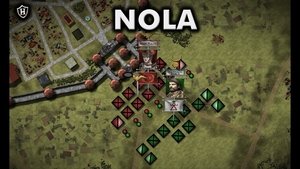
Hannibal adapted to his situation in Italy by using spies to learn about Roman alliances. He released Italian captives to gain support, attempted to negotiate with Rome through released prisoners, but was rejected. He then focused on gaining control in southern Italy, starting with Capua, and faced resistance in Nuceria, which he besieged. Despite his efforts, Rome refused to negotiate, showcasing their determination.
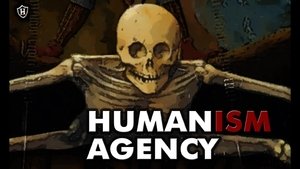
Humanism, a 14th and 15th-century movement, emphasized individual potential, inspired by Francesco Petrarca. It spread across Italy, promoting a human-centric view against the Church's fear-based doctrines. It led to Renaissance Humanism, advocating classical antiquity's revival. Key centers included Rome, Florence, and Venice, focusing on humanities over medieval scholasticism. Humanism harmonized with Christianity, influencing arts and sculpture. Artists like Donatello gained recognition, shifting art's status. Early humanists, including church members like Petrarch, collected ancient manuscripts, spreading humanist education and ideals.
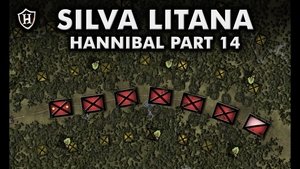
On August 2nd, 216 BC, Hannibal achieved a monumental victory at Cannae, decisively defeating Rome's largest army. This battle became a historical benchmark for military losses in Rome, not surpassed for 600 years. Survivors, including a young tribune named Publius Scipio, regrouped, vowing never to betray Rome. Despite the victory, Hannibal chose not to march on Rome, hindered by logistics and the need for reinforcements. Meanwhile, Rome began to recover, drafting new legions and shoring up defenses, illustrating the resilience and strategic depth that would eventually turn the tide of the war.
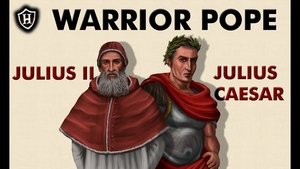
Italy during the late Middle Ages was a mix of fortune and misfortune, with the North being wealthier than the impoverished South. The rise of the Merchant Class in Northern Italy marked a shift from feudal aristocracy to a mercantile economy, fostering trade and weakening noble power. This period saw internal conflicts among city-states like Venice, Florence, and Milan, and external pressures from the Papal States and the Holy Roman Empire. The early Renaissance emerged from this backdrop, spurred by economic shifts and the recovery from disasters like the Black Death, which led to a labor shortage, higher wages, and a burgeoning market for goods and services.
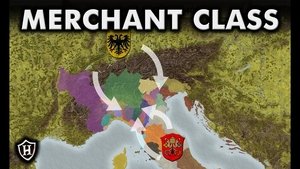
Italy in the late Middle Ages was fragmented and tumultuous, with the North thriving while the South suffered. The rise of the merchant class in Northern Italy shifted power from feudal lords to wealthy merchants, boosting trade and weakening old restrictions. This economic shift laid groundwork for the Renaissance, despite Europe facing disasters like the Black Death. Meanwhile, warring city-states like Venice, Florence, and Milan fought for dominance, with Florence's resistance against Milan's Giangaleazzo Visconti highlighting a pivotal moment for the early Renaissance.
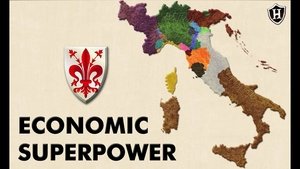
The Renaissance, beginning in 14th-century Florence, spurred Europe from the Middle Ages to modernity. It emphasized human responsibility in shaping society, enriching literature, art, and science. Originating in Italy, fueled by prosperous city-states like Genoa and Venice, it marked a cultural revolution, stressing observation and international diplomacy. The term "Renaissance" was coined by Jules Michelet in 1855, highlighting a pivotal era of profound change.
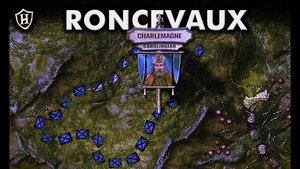
In August 778, Charlemagne led his Frankish army back from Spain through the Pyrenees. His campaigns in Saxony had expanded the Frankish Kingdom, integrating Saxons and battling paganism. Seeking to extend his empire, he allied with Muslim governors opposing the Umayyad emir of Cordoba. Despite initial successes in Iberia, Zaragoza's gates closed against him, leading to a siege. The situation worsened when his rearguard was ambushed at Roncevaux Pass, marking a pivotal moment in his campaign.
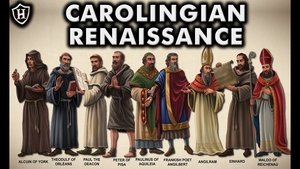
Charlemagne, also known as Charles the Great, was pivotal in the Carolingian Renaissance, uniting Europe and establishing the Holy Roman Empire. His reign transformed society, revising government, military, and social practices. The Carolingian Renaissance marked a cultural shift, promoting arts, literature, and a new moral code. Charlemagne valued education, encouraging learning and preserving texts. His economic reforms included introducing a new currency system, moving away from the gold standard to the livre and denier.
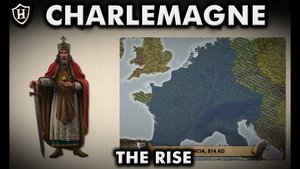
Charlemagne, crowned King in 768 and Emperor in 800 by Pope Leo III, united Western Europe, forming the Holy Roman Empire. Born around 747 to King Pepin the Short and Queen Bertrada, he inherited a vast kingdom and expanded it through military campaigns, including against the Lombards and Saxons, spreading Christianity. His rule marked the start of a European transformation, emphasizing religious, educational, and cultural reforms. Charlemagne's reign laid the foundations for modern Europe, establishing a legacy as one of its greatest leaders.
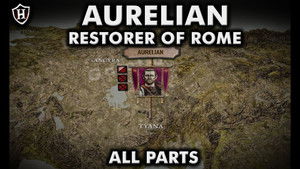
In the Syrian steppe, Palmyra thrived as a cultural melting pot, rich from trade routes. Queen Zenobia, its ruler, faced Emperor Aurelian's challenge over her authority. Under Septimius Odaenathus, Palmyra enhanced its military and political significance. However, the Roman Empire's instability, marked by usurpations and external invasions, threatened its cohesion. The empire was fracturing, with regions declaring independence and internal power struggles, exemplified by Macrianus' attempt to take Rome. Palmyra stood as a beacon of prosperity and strategic importance amidst the chaos.
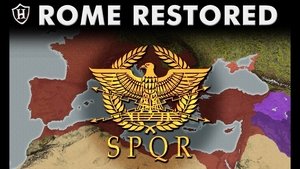
I'm very pleased to have worked with Dr. Byron Waldron on this video. His research and incredible insight into the Crisis of the Third Century made this video possible. The Crisis of the Third Century was one of the darkest periods in Roman history. By 270 AD the empire had practically disintegrated, but emperor Aurelian managed to string an unprecedented series of military victories to restore the Roman Empire. This mini series will feature 3 parts, stay tuned.
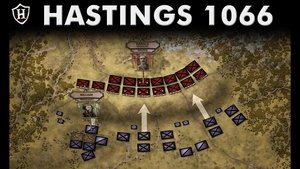
The Battle of Hastings was extremely important for the history of England. Duke William's invasion was one of the most daring gambles in history and it ended the rule of the Anglo-Saxons that had lasted for over 600 years since the Roman times. The story of what happened was recorded in the Bayeux Tapestry.
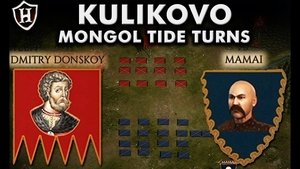
Battle of Kulikovo, fought near the Don River in 1380, was the first victory for Russian forces over the Mongol Golden Horde since the subjugation by Batu Khan. It demonstrated the developing independence of the Russian lands from Mongol rule (which had been imposed in 1240) and was a giant step for the Duchy of Moscow in its rise to leadership of the Russian people.
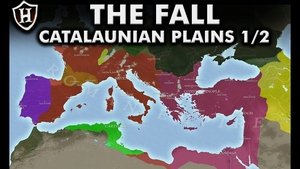
The Battle of Catalaunian Fields was one of most enthralling military engagements in history. Doing research on this topic was amazingly fun. I highly recommend you check out the sources I used for this video, and give them the credit that they deserve. It's thanks to them that we get to learn about these battles in such amazing detail.

The Battle of Agincourt was an English victory in the Hundred Years' War. It took place on 25 October 1415 (Saint Crispin's Day) near Azincourt, in Northern France. The unexpected English victory against the numerically superior French army boosted English morale and prestige, crippled France and started a new period of English dominance in the war.